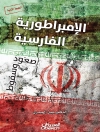This book presents the evolution of the field of foreign policy analysis and explains the theories that have structured research in this area over the last 50 years. It provides the essentials of emerging theoretical trends, data and methodological pitfalls and major case-studies and is designed to be a key entry point for graduate students, upper-level undergraduates and scholars into the discipline. The volume features an eclectic panorama of different conceptual, theoretical and methodological approaches to foreign political analysis, focusing on different models of analysis such as two-level game analysis, bureaucratic politics, strategic culture, cybernetics, poliheuristic analysis, cognitive mapping, gender studies, groupthink and the systemic sources of foreign policy. The authors also clarify conceptual notions such as doctrines, ideologies and national interest, through the lenses of foreign policy analysis.
Tabela de Conteúdo
1.What is Foreign Policy Analysis?What is a Policy? When a Policy Becomes Foreign An Array of Explanations The Levels of Analysis and the Evolution in FPAA Toolbox for Studying FPA 2. How to Identify and Assess a Foreign Policy?The Goals of Foreign Policy–The Goals Communicated –Doctrine–National Interest–Deducing the Goals Pursued Mobilized Resources–Resources–The Power Paradox–Mobilization and Exploitation Instruments of Foreign Policy–Socialization–Coercion–Interventions–Event-Based Databases The Process of Foreign Policy–Segmentation in Six Phases–A Linear, Cyclical or Chaotic Process The Outcome of Foreign Policy–Measuring Effectiveness–Feedback Effects–Historical Institutionalism–Explaining Effectiveness From the Puzzle to the Theoretical Explanations–Theoretical Models3. Do Decision-Makers Matter?Emotions–From Psychobiography to Statistics–The Middle Way: Affective Dimensions–Typologies Combining the Affective Dimensions Cognition–Cognitive Consistency–Operational Codes–Heuristic Shortcuts–Cognitive Mapping–Cognitive Complexity–Schema Theory Perceptions–Misperception–Attribution Bias–Probabilities4. What is the Influence of the Bureaucracy?Management Styles–Defining Management Styles–The Most Appropriate Management Style Group Dynamics–Groupthink–Defining the Phenomenon The Organizational Model–Organizational Strategies–The Effects of Standard Operating Procedures The Bureaucratic Model–One Game, Several Players–The Interactions between the Players–The Position of the Ministry of Foreign Affairs–The Bureaucratic Model and Its Critics5. To What Extent is Foreign Policy Shaped by Institutions?Parliamentary and Electoral System–Presidential and Parliamentary Regimes–Parliamentarians and their Preferences–Political Cohabitation and Coalitions The Strong State and the Weak State–Determining the Relative Power of the State–The Power of the State and Its Foreign Policy The Democratic Peace Proposition–Observing the Democratic Peace–Defining the Variables of the Democratic Peace–The Peaceful Nature of Democracies–Explaining the Democratic Peace Through Norms–The Exchange of Information and Credibility Economic Liberalism–From Democracy to Free Trade–From Free Trade to Peace and Vice Versa–Critics of the Liberal Peace6. How Influential Are the Social Actors?Public Opinion–The Almond-Lippmann Consensus and Its Critics–The Structure of Public Opinion–The Influence of Public Opinion–Audience Costs The Influence of Leaders on Public Opinion–The Rally Around the Flag–The Temptation of War as a Rallying Lever The Media–The Media’s Influence–How Leaders Influence the Media?–The CNN Effect The Interest Groups–How Interest Groups Influence Foreign Policy?–Methodological Pitfalls–Case Studies and Generalizations The Experts–Think Tanks–Epistemic Communities–The Experts’ Predictions7. How Does Rationality Apply to FPA and What Are Its Limitations?Rational Choice–From Micro-Economics to Foreign Policy–The Substitutability of Foreign Policies–Rational Deterrence Modelling Rationality–Game Theory–Cybernetic Theory–The Two-Level Game Rationality and Cognition–Prospect Theories–Poliheuristic Theory8. What Part Does Culture Play in FPA?Norms–Norm Compliance–Norm Diffusion National Identities–The Self and the Other–Evolving Identities–Foreign Policy as Identity Affiliation–Social Identity Theory National Roles–Role Conception–Roles as Foreign Policy Guides Gender–Women, Femininity and Feminism–The Nation and the State in the Feminist Grammar–Foreign States and Nations Organizational and Strategic Cultures–The Stability of Organizational Cultures–Interactions between Organizational Cultures–Strategic Culture–Strategic Cultures and Practices Discourse–Discourse as a Field of Interaction–The Methods of Discourse Analysis9. Does the International Structure Explain Foreign Policy?Structural Theories–The Structural Shift in International Relations–Limits and Criticism Can Structural Theories Inform Foreign Policy?–Structural Assumptions and State Units Reconciling Agent and Structure–From Structure to Agent–From Agent to Structure10. What are the Current Challenges to FPA?Challenge 1: Beyond Eclecticism Challenge 2: Beyond the American Framework Challenge 3: Beyond the State-Centric Prism Challenge 4: Beyond the Ivory Tower
Sobre o autor
Jean-Frédéric Morin is Associate Professor at Laval University, Canada, where he holds the Canada Research Chair in International Political Economy.Jonathan Paquin is Professor of Political Science at Laval University, Canada.












